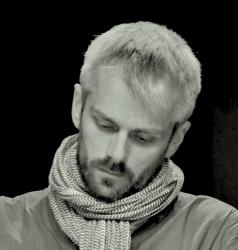Part IX: The Casualties of Institutionalized Intimacy
[Continued from Ungoo: Part VIII]Combined, these faults admittedly sound like the joke about that restaurant: two friends go out for dinner; one complains that the food tastes terrible to which the other replies: yes, and the portions are way too small. The like-button is probably the greatest invention since the billboard, and just as inattentive to thinking. Facebook is fast, whereas most sources seem to agree that depth is slow. If Facebook is the way we converse and, thereby, think, then yes, our culture is probably pretty shallow. Our, as in: yours too, wherever you are from. We are in this together. If this is the case, it might seem tempting to hypothesize: perhaps that was the hidden truth of culture all along, revealed now when we all immediately converse on Facebook: perhaps all culture has always been shallow. Try to hide it as you will, with those fancy clothes and song and dance —underneath lurked nothing but kitten videos. That would be to entirely miss the point. From the day we discovered those fig leaves, culture itself has been the very act of concealing.
In Iceland, people know each other only on first-name basis. When other European countries, through the last centuries, took up the habit of family names, it seemed for a while that Icelanders might follow suit. Some did. That development was then halted by legislation, and the older European tradition of patronymics preserved, in the name of respect for national tradition. Patronymics are never used alone: Jón Jónsson cannot be addressed as Mr.Jónsson, for example. Just Jón. No matter if Jón is your professor, student, doctor or patient, he remains Jón. This may come across as straightforward and somehow more sincere than the distances involved in addressing people with their last names. Often, however, this supposed intimacy just feels obscene. Anyone old enough to have flown before low-fare airlines came about, might know the mild shock of having stewards and stewardesses drop the formalities that used to be involved, to reveal their spontaneous, warm and humorous characters, grinning and giggling while they tell you how to slide onto a rescue boat in case of the plane crashing into the sea. If that frivolity left you with only the slightest hint of nausea, as if a minor cosmic law had dismantled and left you standing in nothing but goo, that’s what a first-name-only society sometimes feels like. Only slightly yes, but all the time, everywhere. In front of a bank clerk, most people would prefer to be wearing, at least, their figurative fig-leaves.
Facebook feels somewhat like that goo, institutionalized. The world on a first-name basis. Iceland, all over the place. A self-declared state of universal intimacy with no emergency exit. This gooey space, where people declare themselves friends, not just with total strangers, but even with the police, reveals that the masks we wore before, the more distant, formal relations of bureaucratic etiquette, were actually, somehow, more truthful. That this now supposedly ‘real you’, is, in the wrong context, a complete fake. You may like kitten videos, but that doesn’t mean you like them in any relation to the manager of your local bank affiliate or to your dentist. Or you may really like a new article on the legacy of Ernest Laclau within social movements, but that doesn’t mean you would like it in front of your mother.
[To be continued …]Buy subscriptions, t-shirts and more from our shop right here!


















